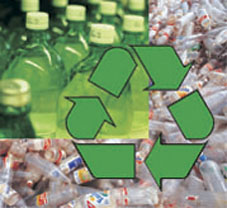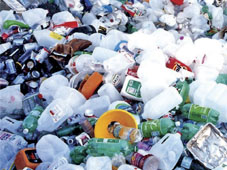新的ISO国际标准,即ISO 15270:2008已发布,旨在推进世界各地新生塑料市场的回收与再利用。同时,在面临诸多应战策略时,该标准能协助您选择对于使

A new ISO International Standard has been released to assist the emerging worldwide market for plastic recovery and recycling. Because plastic products are traded internationally and many of the plastic resin manufacturing companies and industrial users are multinational companies, the arrival of "ISO 15270:2008, Plastics - Guidelines for the recovery and recycling of plastics waste", is particularly opportune. ISO 15270:2008 has been developed to assist all plastics industry stakeholders in the development of a sustainable global infrastructure for plastics recovery and recycling, and a sustainable market for recovered plastics materials and their derived manufactured products. Plastics material for recovery may be obtained from various sources and the major markets for plastics are packaging, building and construction products, electrical and electronic products, automotive/transportation, and household/consumer items. ISO 15270 : 2008 establishes the different options for the recovery of plastics waste arising from pre-consumer and post-consumer sources. The standard will assist in the selection of methodologies and processes for the management of post-use plastics that may be approached using various strategies. In general, plastics recovery technologies can be divided into two classes: material recovery which includes mechanical recycling, chemical or feedstock recycling, and biological or organic recycling; and energy recovery which is in the form of heat, steam, or electricity generation using plastics waste as substitutes for primary fossil fuel resources. This International Standard also establishes the quality requirements that should be considered in all steps of the recovery process. Selection of any one of the available recycling options should be based on compliance with the following requirements: ● the need to minimize adverse environmental impact ● prior demonstration of sustainable commercial viability ● secure access to viable systems for collection and quality control.

ISO 15270:2008 also provides recommendations for inclusion in material standards, test standards and product specifications. Consequently, the process stages, requirements, recommendations and terminology presented in this standard are intended to be of general applicability. Dr. Michael M. Fisher, Chair of ISO/TC 61 Plastics, the committee that developed the standard, comments, "Access to markets for recovered materials or energy is an important consideration. There is already international trade in end-of-life products for the purpose of reclaiming or recycling the plastic components and ISO 15270:2008 is intended to provide a valuable resource that is globally relevant, no matter which particular legislative or regulatory framework for plastic recovery and recycling governs its application." ISO 15270:2008, Plastics - Guidelines for the recovery and recycling of plastics waste costs 78 Swiss francs and is available from ISO national member institutes and from ISO Central Secretariat through the ISO website at www.iso.org .
Adidas A new ISO International Standard has been released to assist the emerging worldwide market for plastic recovery and recycling. Because plastic products are traded internationally and many of the plastic resin manufacturing companies and industrial users are multinational companies, the arrival of "ISO 15270:2008, Plastics - Guidelines for the recovery and recycling of plastics waste", is particularly opportune. ISO 15270:2008 has been developed to assist all plastics industry stakeholders in the development of a sustainable global infrastructure for plastics recovery and recycling, and a sustainable market for recovered plastics materials and their derived manufactured products. Plastics material for recovery may be obtained from various sources and the major markets for plastics are packaging, building and construction products, electrical and electronic products, automotive/transportation, and household/consumer items. ISO 15270 : 2008 establishes the different options for the recovery of plastics waste arising from pre-consumer and post-consumer sources. The standard will assist in the selection of methodologies and processes for the management of post-use plastics that may be approached using various strategies. In general, plastics recovery technologies can be divided into two classes: material recovery which includes mechanical recycling, chemical or feedstock recycling, and biological or organic recycling; and energy recovery which is in the form of heat, steam, or electricity generation using plastics waste as substitutes for primary fossil fuel resources. This International Standard also establishes the quality requirements that should be considered in all steps of the recovery process. Selection of any one of the available recycling options should be based on compliance with the following requirements: ● the need to minimize adverse environmental impact ● prior demonstration of sustainable commercial viability ● secure access to viable systems for collection and quality control.
A new ISO International Standard has been released to assist the emerging worldwide market for plastic recovery and recycling. Because plastic products are traded internationally and many of the plastic resin manufacturing companies and industrial users are multinational companies, the arrival of "ISO 15270:2008, Plastics - Guidelines for the recovery and recycling of plastics waste", is particularly opportune. ISO 15270:2008 has been developed to assist all plastics industry stakeholders in the development of a sustainable global infrastructure for plastics recovery and recycling, and a sustainable market for recovered plastics materials and their derived manufactured products. Plastics material for recovery may be obtained from various sources and the major markets for plastics are packaging, building and construction products, electrical and electronic products, automotive/transportation, and household/consumer items. ISO 15270 : 2008 establishes the different options for the recovery of plastics waste arising from pre-consumer and post-consumer sources. The standard will assist in the selection of methodologies and processes for the management of post-use plastics that may be approached using various strategies. In general, plastics recovery technologies can be divided into two classes: material recovery which includes mechanical recycling, chemical or feedstock recycling, and biological or organic recycling; and energy recovery which is in the form of heat, steam, or electricity generation using plastics waste as substitutes for primary fossil fuel resources. This International Standard also establishes the quality requirements that should be considered in all steps of the recovery process. Selection of any one of the available recycling options should be based on compliance with the following requirements: ● the need to minimize adverse environmental impact ● prior demonstration of sustainable commercial viability ● secure access to viable systems for collection and quality control.  ISO 15270:2008 also provides recommendations for inclusion in material standards, test standards and product specifications. Consequently, the process stages, requirements, recommendations and terminology presented in this standard are intended to be of general applicability. Dr. Michael M. Fisher, Chair of ISO/TC 61 Plastics, the committee that developed the standard, comments, "Access to markets for recovered materials or energy is an important consideration. There is already international trade in end-of-life products for the purpose of reclaiming or recycling the plastic components and ISO 15270:2008 is intended to provide a valuable resource that is globally relevant, no matter which particular legislative or regulatory framework for plastic recovery and recycling governs its application." ISO 15270:2008, Plastics - Guidelines for the recovery and recycling of plastics waste costs 78 Swiss francs and is available from ISO national member institutes and from ISO Central Secretariat through the ISO website at www.iso.org .Adidas
ISO 15270:2008 also provides recommendations for inclusion in material standards, test standards and product specifications. Consequently, the process stages, requirements, recommendations and terminology presented in this standard are intended to be of general applicability. Dr. Michael M. Fisher, Chair of ISO/TC 61 Plastics, the committee that developed the standard, comments, "Access to markets for recovered materials or energy is an important consideration. There is already international trade in end-of-life products for the purpose of reclaiming or recycling the plastic components and ISO 15270:2008 is intended to provide a valuable resource that is globally relevant, no matter which particular legislative or regulatory framework for plastic recovery and recycling governs its application." ISO 15270:2008, Plastics - Guidelines for the recovery and recycling of plastics waste costs 78 Swiss francs and is available from ISO national member institutes and from ISO Central Secretariat through the ISO website at www.iso.org .Adidas













